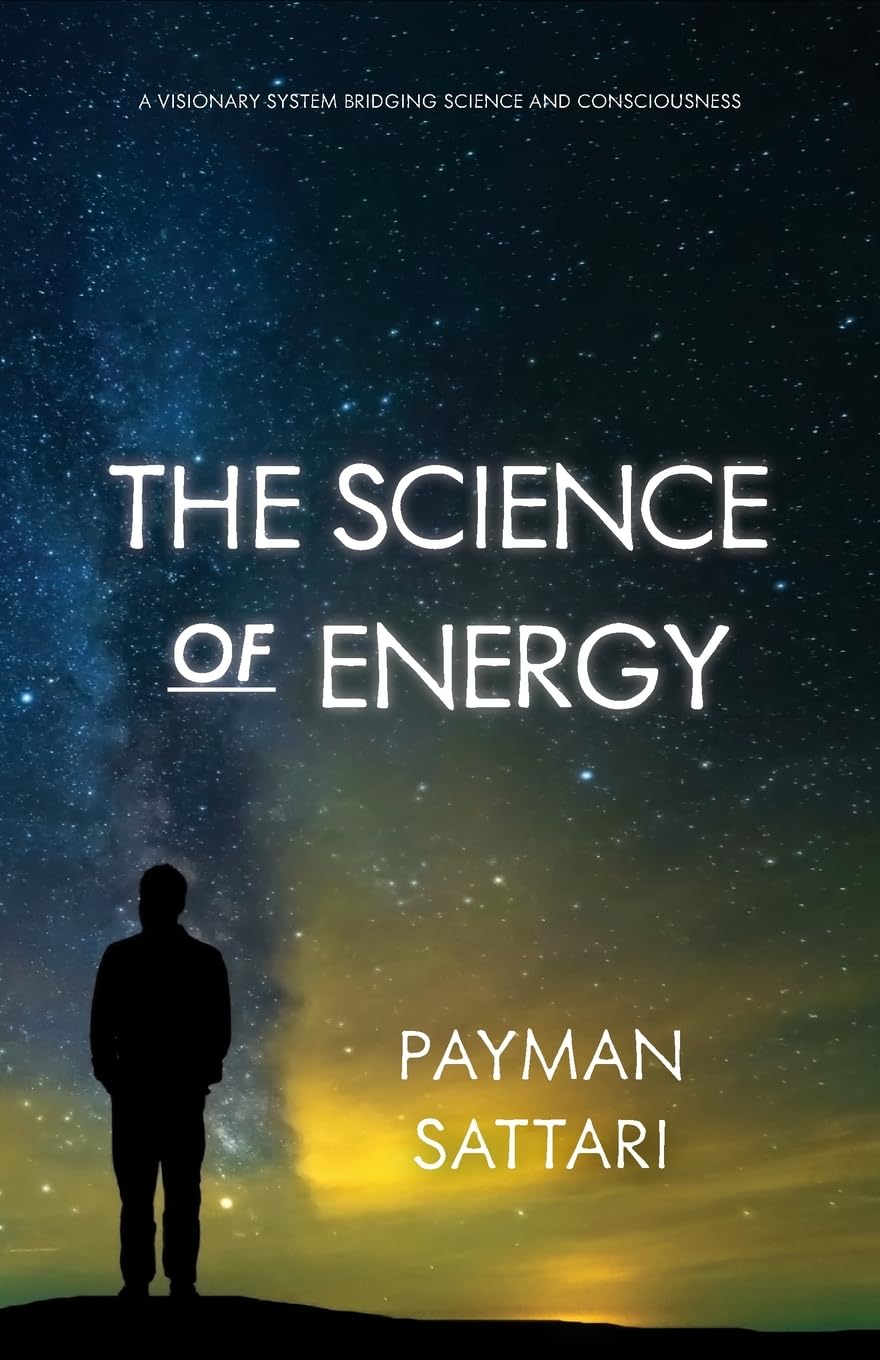The Science of Energy (The Language of Truth)
With The Science of Energy, a clear-sighted and wide-ranging work of scientific and philosophical exploration geared toward experts and laypeople alike, Payman Sattari aims to examine the evolution of humanity’s metaphysical understanding and the history of truth in an effort to develop a new ontology (or system) that accounts for the entire cosmic order—that is, the subjective, the objective, and everything currently beyond classification.
To accomplish this daunting aim, Sattari starts at the beginning, with the origins of philosophy and science. He presents a whistlestop tour of how these vital fields evolved from the prevalent belief in ancient times that deities were responsible for pretty much everything, through the Greek enlightenment and the works of the early philosophers, to the development of natural philosophy as a discipline.
Sattari then diverges into the realm of religion and how it relates to both science and philosophy. First, however, he draws an important distinction, as the “difference between the fields of philosophy and science, and what we call religion, is that philosophy and science are based on reason, whereas religion receives its truth from the teachings of a prophet or the wisdom of ancestors (tradition).”
Still, while Sattari notes that religious truth is “not typically reasoned truth,” he contends that reason and faith have been integrated since the late Middle Ages and that comprehension of both is necessary to truly understand the nature of reality, which is the inherent goal of The Science of Energy. Thus, the book should appeal to those interested in science, philosophy, religion, and any combination of these disciplines, despite the antipathy that sometimes seems to exist among their proponents.
As the discussion moves on to the scientific revolution of the sixteenth and seventeenth centuries, the Enlightenment era, and beyond, Sattari condenses a plethora of “brilliant minds” and “revolutionary thoughts” into bite-sized and easily digestible nuggets that serve to educate regarding the relevant fields and to elucidate Sattari’s own thoughts on the true nature of reality and how human life is organized.
After setting the scene in detail in this way, Sattari turns the general into the personal and examines how a person’s senses and intellect are influenced by and in turn influence the wider metaphysical world. There are less “facts” in the traditional sense presented here and greater work is required to follow his philosophical points. Doing so, though, reveals some interesting ideas about the composition of the natural world and how it relates to human understanding.
Given its aim and content, The Science of Energy tackles some very weighty and still debated concepts, including quantum mechanics and the relativity of time and space, but Sattari addresses such topics in a clear and concise way, rendering them understandable to the majority. His fusion of the organism and the machine later in the book is equally intelligible, explaining how modern scientific understanding can serve to elucidate deep-seated philosophical and spiritual matters.
This is particularly relevant during the intriguing discussion in which Sattari considers the differences between Eastern and Western viewpoints on both the nature of the individual and the composition of reality as a whole. The West tends to adopt a more quantitative approach, while the East focuses more on spiritual interpretations, so a fusion of the two styles is requires to achieve a comprehensive understanding of the cosmic order. Sattari’s arguments are again insightful and persuasive here, and all this leads to the interpretation of truth, which is necessary for apprehension of the bigger picture.
Yet, while Sattari’s explanations are interesting and insightful, and allowing for the fact that The Science of Energy is intended to present his own musings and formulations, it would have been good if the book had made much greater use of sources, whether in footnotes or a larger bibliography. This would have bolstered the arguments and provided useful avenues for further investigation. The book could also have been expanded somewhat to include more detail on the main subjects at hand.
Overall, however, The Science of Energy offers an astute and perceptive exploration of human consciousness, how it relates to and informs reality, and how disciplines such as science, philosophy, and religion intertwine to influence the nature of existence and how it is understood.
| Author | Payman Sattari |
|---|---|
| Star Count | 4/5 |
| Format | Trade |
| Page Count | 244 pages |
| Publisher | Pragda Press |
| Publish Date | 31-Dec-2023 |
| ISBN | 9798989627516 |
| Bookshop.org | Buy this Book |
| Issue | March 2024 |
| Category | Philosophy |
| Share |






